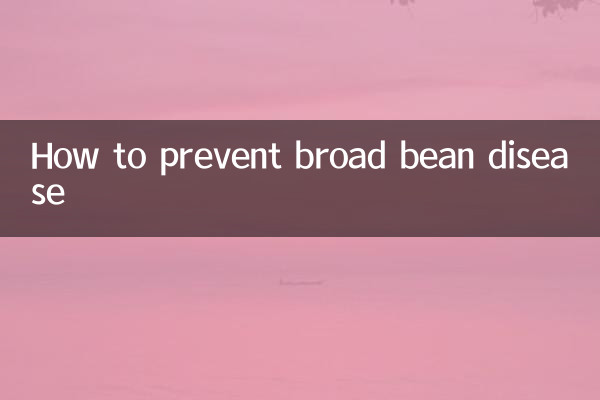How to prevent broad bean disease
Favismosis (G6PD deficiency) is a hereditary enzyme deficiency disease in which patients may develop a hemolytic reaction after exposure to certain foods or drugs. In recent years, the prevention and management of favisa disease has become a hot topic of public concern. This article will combine the popular discussions on the Internet in the past 10 days to provide you with detailed prevention methods and precautions.
1. What is favisa disease?

Favismosis is a genetic disease caused by a deficiency of glucose-6-phosphate dehydrogenase (G6PD). The patient's body lacks this enzyme, and red blood cells are prone to rupture under certain conditions, causing hemolytic anemia. Common triggers include eating broad beans, certain medications, or infections.
2. High-risk groups for favismosis
| Crowd type | risk level |
|---|---|
| Those with a family history of broad bean disease | high |
| Male (X chromosome recessive inheritance) | high |
| Mediterranean, Southeast Asian, African descent people | in |
| Newborns (screening required) | in |
3. Preventive measures for broad bean disease
1. Diet taboos
| food category | Specific taboos |
|---|---|
| beans | Broad beans and broad bean products |
| medicine | Sulfonamides, antimalarial drugs, certain antipyretics |
| Others | Mint, mothballs |
2. Daily precautions
• Avoid contact with mothballs (naphthalene balls)
• Use traditional Chinese medicine (such as coptis and honeysuckle) with caution
• Consult your doctor before vaccination
• Regular blood tests
3. Emergency treatment
If symptoms of hemolysis (such as jaundice, soy sauce-colored urine) occur, seek medical attention immediately. Treatment usually involves blood transfusions, fluid replacement, and correction of electrolyte imbalances.
4. Recent hot discussions
In the past 10 days, the following topics related to favisa disease have attracted widespread attention:
| topic | focus |
|---|---|
| Fava bean disease and COVID-19 vaccine | Vaccination safety |
| Screening for favismosis in children | Necessity of newborn screening |
| Misdiagnosis case of favismosis | Improve diagnostic accuracy |
5. Expert advice
1. People with family history should undergo genetic testing before marriage.
2. G6PD screening is recommended for newborns after birth
3. Patients should carry a list of contraindicated drugs with them
4. Regular follow-up visits to monitor hemoglobin levels
6. Common Misunderstandings
| Misunderstanding | facts |
|---|---|
| You will get sick only if you eat broad beans | Many factors may induce |
| Women don’t get sick | Female carriers may also develop the disease |
| He will heal on his own when he grows up | Lifelong disease with no cure |
7. Summary
Prevention of favismosis focuses on avoiding triggers and raising awareness. With scientific dietary management, medication avoidance and regular check-ups, patients can live a normal life. It is recommended that the public enhance their understanding of this disease, especially couples of childbearing age, who should pay attention to genetic screening to reduce the occurrence of the disease from the source.
If you or your family members have relevant symptoms, please seek medical treatment promptly and consult a professional doctor. Prevention is better than cure, and scientific understanding is the key.

check the details

check the details